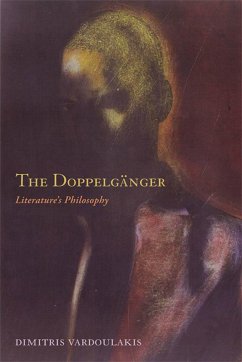The Doppelgnger presents literature as the double of philosophy. This relation is historically rooted in the genesis of the doppelgnger as literature's response to the philosophical focus on subjectivity: The term doppelgnger was coined by the German author Jean Paul in 1796 as a critique of Idealism's assertion ofsubjective autonomy, individuality, and human agency. This critique prefigures late twentieth-century extrapolations of the subject as decentered. From this perspective, the doppelgnger has a family resemblance to current conceptualizations of subjectivity. It becomes the emblematic subject of modernity.This is the first significant study of the doppelgnger's influence on philosophical thought. Reading literature philosophically and philosophy as literature, Vardoulakis examines authors such as Franz Kafka, Maurice Blanchot, and Alexandros Papadiamantes and philosophers such as Immanuel Kant, Walter Benjamin, andJacques Derrida to show how the doppelgnger emerges as a hidden and unexplored element both in conceptions of subjectivity and in philosophy's relation to literature.








